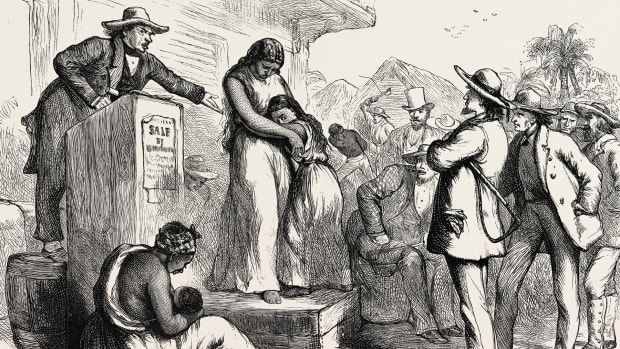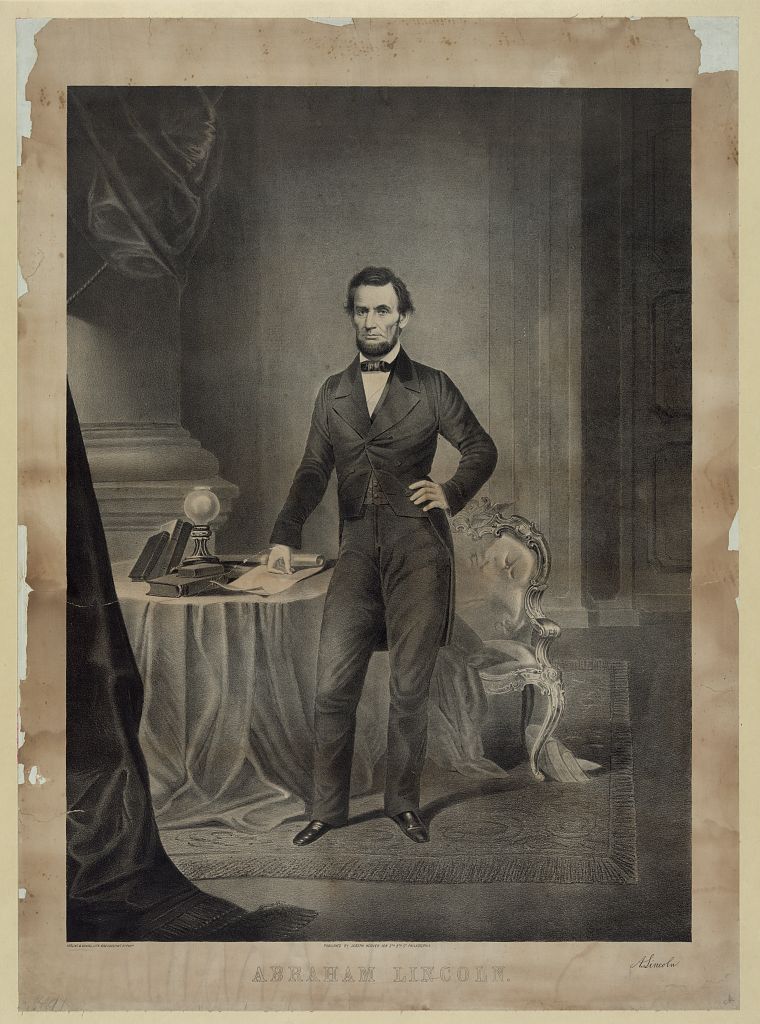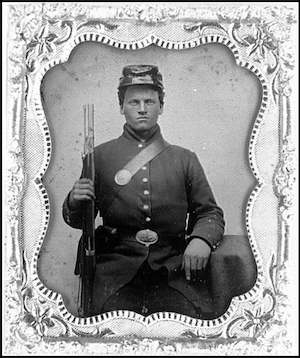
Enslaved Woman and Child Being Sold at An Auction (1870s)
History

Portrait of Abraham Lincoln (1860)
Herline & Hensel, Library of Congress

Federal Soldier (1860-1864)
Library of Congress
The Civil War in the United States began on April 12, 1861, and ended on May 9, 1865. Abraham Lincoln was the president, and therefore the Commander-in-Chief of all military operations. Due to his position, Lincoln had to make decisions for the U.S. that had never even been considered before (ex. the temporary suspension of habeas corpus). One reason for Southern secession was Lincoln's election, as the Confederacy's ideals were very different from Lincoln's. This, along with other extreme cases of sectionalism within the United States, fanned the flames of the South that eventually became the wildfire of the Confederacy.
Should American citizens be allowed to own other humans as property? Heated debates over this question can be traced as far back as the Constitution, if not further. In America, around the mid-1800s, there were three distinct thought processes regarding slavery. The first was that slavery should be completely abolished and all the slaves freed and given independence (most popular in the North). Secondly, some Americans were against slavery from a moral standpoint, but were not active in its abolition and thought that it would die out on its own over time. Finally, one group believed that slavery was a good system that must be preserved; this ideal was held primarily among southerners and slaveowners who benefited economically from slavery. Obviously, such different opinions on such an important problem sparked anger and enmity between the regions, and led to the secession of the South.